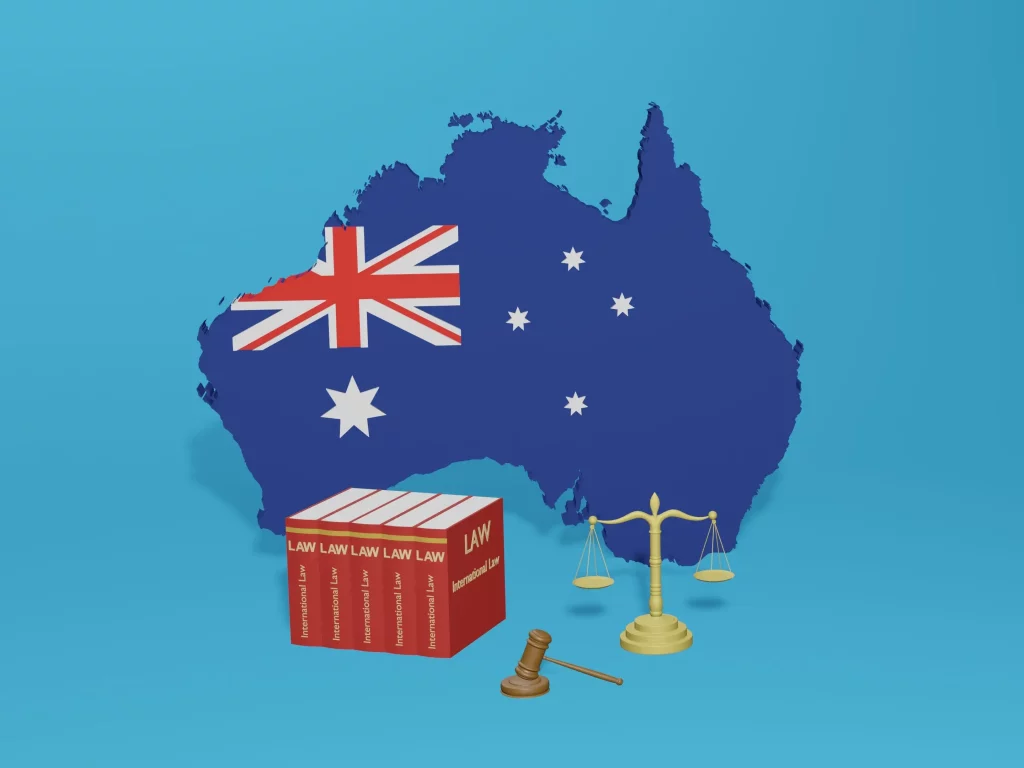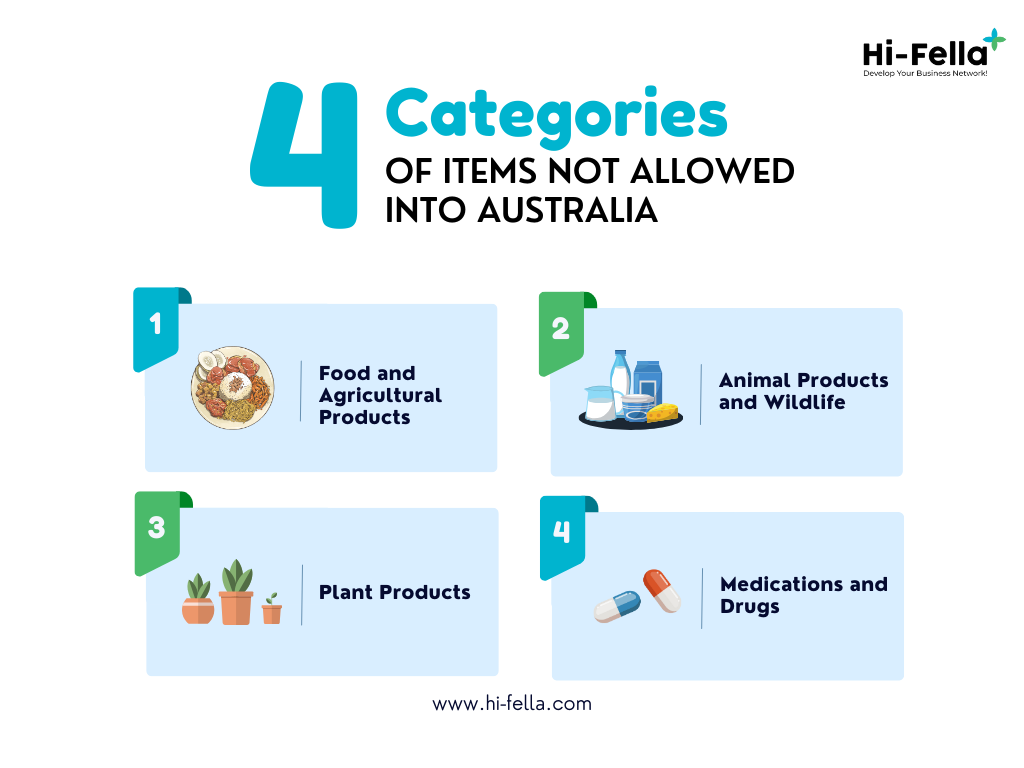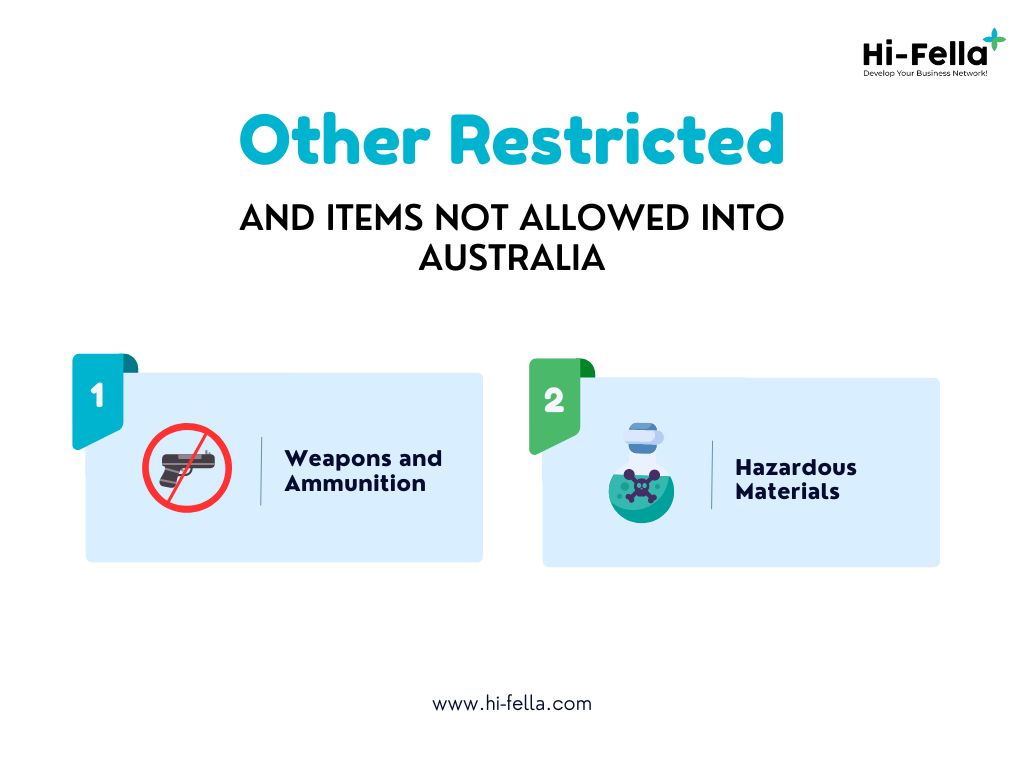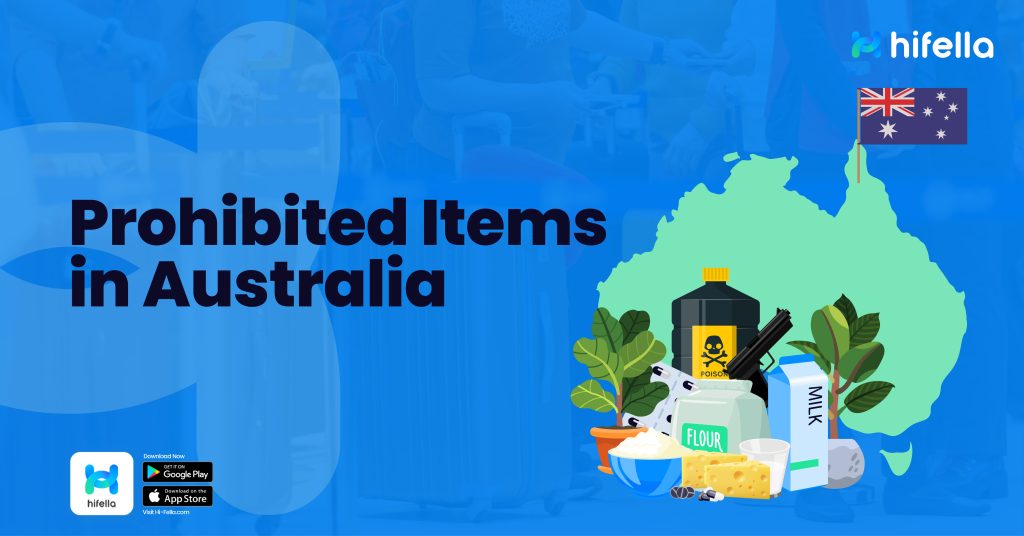Table of Contents
“Items not allowed into Australia” must be understood well beyond just packing your bags and booking a ticket for traveling to this country.
Knowing the strict customs regulations, particularly regarding prohibited items, is crucial for anyone planning to enter, whether for a short visit, relocation, or when sending packages.
This guide aims to educate travelers, international students, immigrants, and expats on items that are strictly prohibited from entering Australia, helping you avoid unnecessary delays.
The Importance of Australia’s Customs Regulations

The importance of understanding Australia’s customs regulations cannot be overstated, especially when it comes to items not allowed into Australia. These rules are in place to protect the country’s unique environment, agriculture, public health, and safety.
Read more: Australia: Continent, Country, or Both?
 All About Canton Fair: What, Why, and How Can - The Canton Fair, also known as the China Import and Export Fair, is one of the largest and most comprehensive trade fairs in the world. After knowing about the canton fair, it is also often recognized as an important platform for entrepreneurs, importers, exporters, retailers, investors and business professionals to explore international trade opportunities, especially […]
All About Canton Fair: What, Why, and How Can - The Canton Fair, also known as the China Import and Export Fair, is one of the largest and most comprehensive trade fairs in the world. After knowing about the canton fair, it is also often recognized as an important platform for entrepreneurs, importers, exporters, retailers, investors and business professionals to explore international trade opportunities, especially […]Protecting Unique Ecosystems
Australia’s isolation has fostered a distinct and diverse natural environment. However, this isolation also means that foreign diseases and pests can easily disrupt its ecosystems.
The country’s customs regulations are crucial in protecting its native species and agriculture from external threats.
Public Health Considerations
Certain items are banned to prevent the spread of disease and maintain public health standards. These regulations are made to protect Australian residents and visitors from potential health risks.
Categories of Items Not Allowed into Australia

Australia’s strict customs regulations aim to protect its unique ecosystems, agriculture, and public health. The following details the categories of goods that are generally prohibited or severely restricted from entering the country:
1. Food and Agricultural Products
Australia has strict biosecurity measures to prevent pests and diseases that could harm its environment and agriculture. This category includes:
- Fresh fruits and vegetables
To prevent the entry of pests and diseases.
- Meats and seafood
Restrictions are in place to avoid diseases like foot-and-mouth disease and avian influenza.
- Dairy products
Certain dairy items may be restricted due to disease control measures.
2. Animal Products and Wildlife
To protect local fauna and prevent the spread of diseases, restrictions apply to:
- Products made from animals
This includes fur, ivory, and items made from endangered species, which might be subject to CITES (Convention on International Trade in Endangered Species) regulations.
- Wildlife and pets
Importing wildlife or pets requires strict quarantine procedures to prevent the spread of diseases.
3. Plant Products
The importation of plant materials is controlled to protect local flora from pests and diseases. This includes:
- Seeds and live plants
Often require a permit and quarantine to prevent the introduction of invasive species.
- Wooden items
Restrictions apply to prevent the spread of pests that can live in wood.
4. Medications and Drugs
To safeguard public health, the importation of medications and drugs is tightly controlled:
- Prescription medications
Must be declared and, in some cases, require a prescription or a letter from a doctor.
- Recreational drugs
Are illegal and strictly prohibited.
- Over-the-counter drugs
Some might be restricted due to active ingredients not being approved in Australia.
Understanding and complying with these regulations is crucial for anyone looking to travel to or send goods to Australia.
Always check the most current guidelines from the Australian Border Force and the Department of Agriculture, Water, and the Environment before packing or shipping items to Australia.
Other Restricted and Items Not Allowed Into Australia

In addition to food, agricultural products, animal products, plant materials, and medications, Australia enforces strict controls on other categories of items to ensure public safety and environmental protection. Here are further details on these restrictions:
1. Weapons and Ammunition
Australia has stringent laws regarding the importation and possession of weapons and ammunition, aiming to maintain public safety and reduce crime:
- Firearms and ammunition
These require specific permits and thorough background checks. Importation without proper authorization is illegal.
- Knives and other weapons
Certain types of knives, such as switchblades or butterfly knives, and other weapons like tasers or pepper sprays, are heavily restricted or banned.
- Martial arts equipment
Items considered to be used for martial arts or self-defense that can cause harm are also regulated.
2. Hazardous Materials
To protect the environment and public health, the importation of hazardous materials is closely monitored and often restricted:
- Chemicals
Toxic, flammable, or otherwise hazardous chemicals are subject to import controls to prevent accidents and environmental damage.
- Asbestos-containing materials
The import and use of asbestos and products containing asbestos are banned in Australia due to its health risks.
- Biological materials
The importation of biological materials, including certain pathogens and genetically modified organisms (GMOs), is controlled to prevent biosecurity risks.
For individuals and businesses looking to import weapons, ammunition, or hazardous materials into Australia, it is crucial to understand the specific requirements and obtain the necessary permits and approvals.
Failing to comply with these regulations can result in significant penalties, including fines and imprisonment.
Before attempting to import any “items not allowed into Australia,” it’s essential to consult with the Australian Border Force and other relevant authorities for the latest information and guidance on importation procedures and restrictions.
Read more: Exports of Australia: Thriving with Diversity in Export Commodities
Q&A: Bringing Items into Australia
If you are still confused and unsure about the items not allowed into Australia, here is a list of questions that people often ask along with the answers:
Q: What items am I allowed to bring into Australia?
A: You can bring many items into Australia, but you must declare all food, plant material, and animal products to customs for inspection. This includes packaged food, wooden items, and souvenirs made from animal or plant material.
Q: Can I bring food into Australia?
A: Yes, you can bring certain food items into Australia, but strict restrictions apply to fresh fruits, vegetables, meats, and dairy products. All food must be declared upon arrival.
Q: Are dried fish and spices allowed into Australia?
A: Dried fish and spices can be brought into Australia but must be declared at customs. They may be subject to inspection to ensure they meet biosecurity requirements.
Q: What are the restrictions on bringing honey and dairy products like cheese into Australia?
A: Honey and dairy products including cheese can be brought in but must be declared. They will be inspected, and if they do not meet Australia’s import conditions, they may be confiscated or destroyed.
Q: What are some prohibited items I cannot bring or mail to Australia?
A: Prohibited items include certain weapons, drugs, protected wildlife, and items that pose a biosecurity risk. Ensure you check the latest customs regulations before traveling or mailing items to Australia.
Q: How do I declare items when arriving in Australia?
A: Upon arrival, you’ll be given an Incoming Passenger Card where you can declare goods. Be honest and detailed in your declarations to avoid penalties.
Q: Can I bring dried fruit and coffee beans into Australia?
A: Dried fruit and coffee beans can be brought into Australia but must be declared. They are subject to inspection and may be restricted based on biosecurity risks.
Q: What are Australia’s customs restrictions on food?
A: Australia’s customs restrictions on food primarily aim to protect against pests and diseases. Fresh produce and certain animal products are highly regulated. Always declare any food items you’re bringing in.
Q: Are there any specific foods I can bring into Australia without worry?
A: Processed foods, chocolates, and confectionery are generally allowed but must still be declared. The absence of fresh ingredients and lower biosecurity risk make these items less problematic.
Q: What should I do if I’m unsure about an item I want to bring to Australia?
A: If you’re unsure, it’s best to declare the item upon arrival. You can also check the Australian Border Force and Department of Agriculture websites for guidance on specific items before traveling.
Read More: How a Buyers Agent in Sydney Can Streamline Your Property Buying Journey








